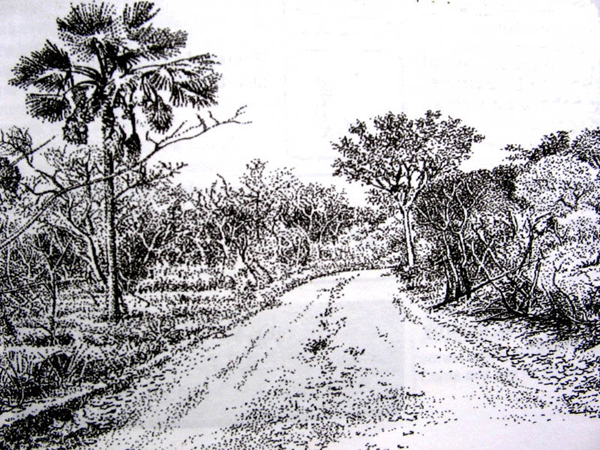NIGERIA'S NATIONAL PARKS

GASHAKA-GUMTI NATIONALPARK
A message from Alhaji Lawan B. Marguba
(Director/Chief Executive & Conservator General
Nigeria's National Parks Service from its
inception until 2005)
"The first National Park was established in 1872 at Yellowstone in the United States of America. Since then, many more National Parks have been created all over the world. Established in the 1920s and 1930s, National Parks in eastern and southern Africa have been particularly successful. They have become major tourist attractions generating significant sources of foreign exchange earnings for their countries. In Nigeria, the idea in National Park establishment is a very recent development. In 1979, Kainji Lake was established as the first National Park in the country. Then Chad Basin, Cross River, Gashaka-Gumti, Old Oyo and Yankari were established to bring the number so six National Parks. This year (1999), Kamuku and Okomu National Parks were added through the promulgation of Decree 46 of 1999, bringing the number of National Parks to eight.
Among other objectives, these Parks were established to protect representative samples of Nigeria's varied ecosystem - from the semi arid or Sahel to Sudan and Guinea savannas, wetlands, rainforests, montane, etc. It is encouraging to note that these National Parks are all quietly making progress. It is true that our National Parks generally lack the spectacular concentrations of large wild animal population usually associated with African National Parks. However, in terms of biological diversity (biodiversity) our National Parks can stand their own. In fact did you know that Nigeria as a whole support more than 274 different species of mammals, 831 species of birds and about 4,600 species of plants?
Despite the constant reference to National Parks in our daily affairs, in my own experience, the majority of Nigerians are still vague about the roles and objectives of our National Parks. I will try and explain. National parks play special roles, some of which are tangible while others are not so obvious or intangible. They play highly vital roles in ecological processes and life support systems, they protect the environment, particularly watershed areas, they play important roles in science and education, they preserve our indigenous genetic resources that are the basis of any meaningful advancement in our agricultural system and technology, etc. Indeed given our high population and our dependence on natural sources for much of our food, fibre and medicine, the role National Parks play far outweighs all other benefits and is not quantifiable in monetary terms.
Nigeria is currently beset with many environmental problems such as deforestation, drought, desertification, sheet, gully and coastal erosion and flooding, loss of biological resources, etc. Without doubt, the National Parks stand to offer some antidote to these ills. The National Parks are essentially today's investments for Nigeria's tomorrow so that generations yet born can have a secure future."
